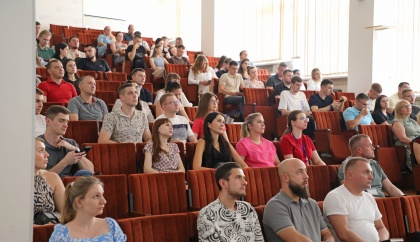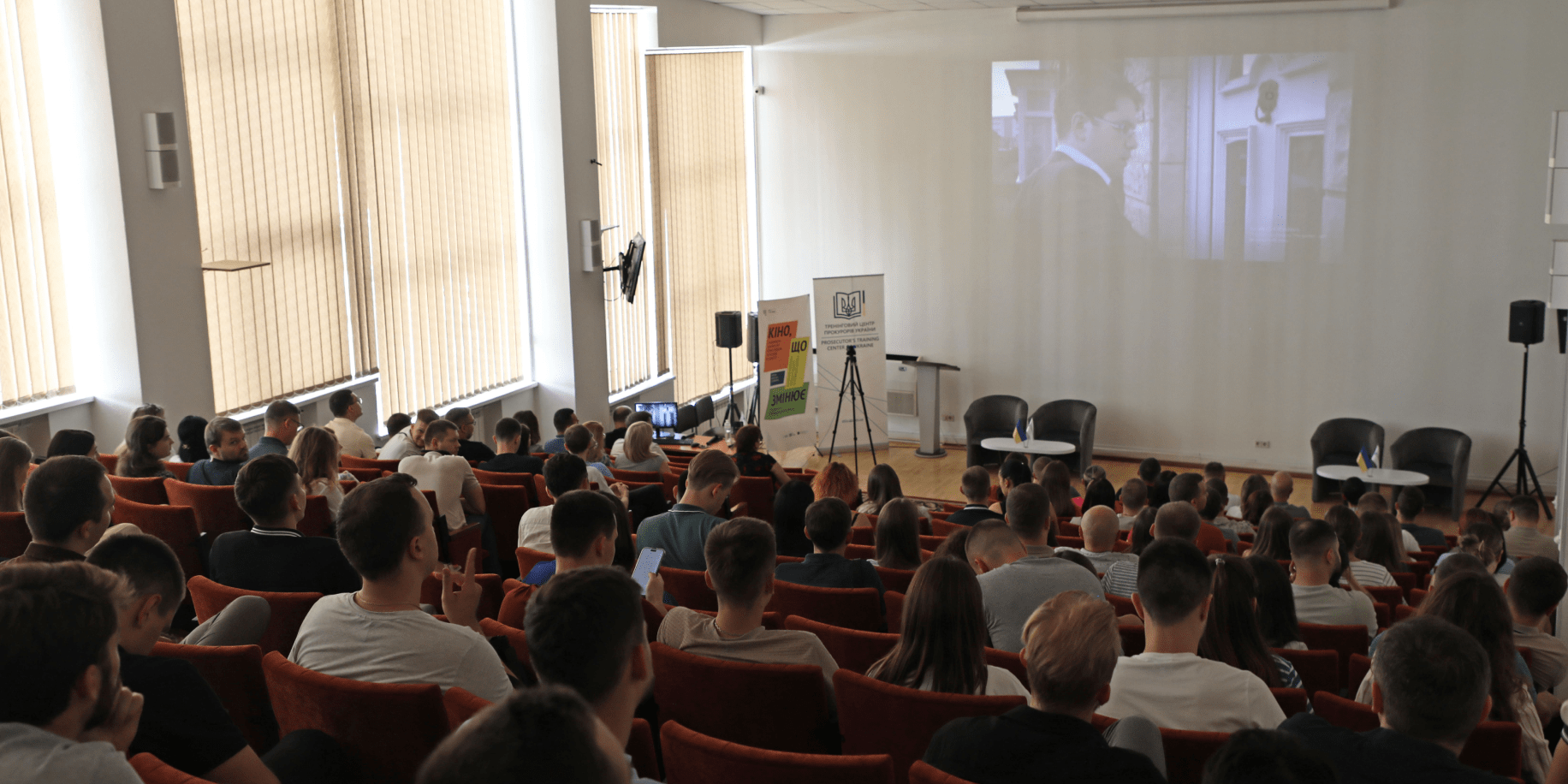
New approaches to prosecutors’ training: from Docudays UA film clubs to the use of OSINT technologies for war crimes investigations in the context of modern warfare.
Reprinted from Loyer.
In 2020, the Training Center for Prosecutors was established in Ukraine. It provides training both for advanced prosecutors and trainees. Since the beginning of this year, the Training Center has been hosting a Docudays UA Human Rights Documentary Film Club, which is part of the DOCU/CLUB Network. Documentaries from all over the world are used here as an effective tool for training prosecutors. Today, the Prosecutor's Office's priority is the investigation of war crimes. The Prosecutor General’s Office, together with leading national experts in international humanitarian law, has developed methodological guidelines on standards for war crimes investigation for investigators and prosecutors. The team of experts involved investigators and prosecutors and studied international experience for the development of standards and quality algorithms for war crimes investigation. In contemporary warfare, OSINT investigators who use open sources and social media in their work are also actively involved in identifying war crimes suspects. The results of their investigations can be used as evidence in court. This gives additional grounds to hope that those responsible for war crimes will be brought to justice. Mastering OSINT methods and technologies is crucial for everyone involved in investigations. Specialists of the Training Center of Prosecutors of Ukraine have a shared understanding of their importance.

This month, the Center's students had the opportunity to network and learn from the investigative experience of the Bellingcat independent international team of researchers, investigators, and journalists. Oleh Duka, moderator of a Docudays UA film club and Deputy Director of the Center, suggested that the trainee prosecutors watch the film Bellingcat: Truth in a Post-Truth World by Dutch director Hans Pool. The founder of Bellingcat, Elliot Higgins, and Olha Lyubiv, the Ukrainian team member, joined the discussion of the film. They noted that the Bellingcat team had conducted several war crimes investigations in Ukraine over the past year and discussed its findings with prosecutors at various levels. The results of all investigations were confirmed by military experts. “It is very difficult to find information about the perpetrators,” said Elliot Higgins. “The number and scale of atrocities committed by Russia against Ukraine surpasses all modern wars and conflicts. The challenge we face is to bring to justice those who commit these crimes, using open-source intelligence and the technology we have developed.” Today, both international institutions and the Ukrainian justice system have more and more opportunities to use open-source evidence. But there is an important detail that prosecutors should take into account. Olha Lyubiv emphasized: “OSINT (open source intelligence) data is by no means intended to be independent evidence in any case. This data is auxiliary, helping to fill in the “blanks” when prosecutors cannot obtain evidence in certain cases.” According to her, there were many such cases, especially at the beginning of the full-scale invasion, when prosecutors were physically unable to get to their workplaces and record the destruction due to shelling. In addition, evidence from open sources is helpful while investigating crimes committed in the occupied territories or zones where active hostilities are taking place. “We have a number of requests from prosecutors to identify the enemy command responsible for certain crimes. We help find out which combat units were located in a particular area and which one of them was responsible for a particular crime. The list of crimes can vary from artillery attacks to torture or murder of Ukrainian prisoners of war,” said Olha Lyubiv. The Ukrainian expert noted that the practice of OSINT use in Ukraine is increasing with every year: “The process is developing quite rapidly. Even in this last year, we have been working closely with Ukrainian judges, receiving their recommendations to prosecutors on the peculiarities of open-source evidence that will allow for its use in court. Investigations from open sources can be conducted using certain mechanisms and methodology that we have adapted and successfully applied. We shared these developments with the prosecutor's office and judges. Judges say that they accept the evidence collected on the basis of our methodology.”
Still from the film Bellingcat: Truth in a Post-Truth World Elliot Higgins noted that increased attention and trust in OSINT is a global trend. The International Criminal Court and other international institutions also use open-source information in many cases. This poses additional challenges for investigators, the most important of which is to thoroughly verify the findings before publishing them. The founder of Bellingcat advised future prosecutors to use OSINT in their professional activities, remembering to thoroughly verify data and conduct deep fact-checking, as well as pay increased attention to systemic data protection, in particular, by never using personal computers and gadgets during investigations. Summing up the conversation, Oleh Duka, Deputy Director of the Training Center for Prosecutors of Ukraine, noted that both expert trainers and trainee prosecutors are aware of the importance of OSINT technology for their professional work and assured that studying Bellingcat's experience and methods will become an important part of the training of future prosecutors. The development of the DOCU/CLUB Network is funded by the United States Agency for International Development (USAID), the Embassy of Sweden in Ukraine, the National Endowment for Democracy (NED) and Fondation de France. The opinions, conclusions, or recommendations are those of the authors and compilers of this publication and do not necessarily reflect the views of the governments or charitable organizations of these countries. The authors and compilers are solely responsible for the content of this publication.



